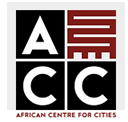New report looks at informal
food sector in Oshakati, Namibia
AFSUN’s latest report – Food Security in Africa’s Secondary Cities: No. 4.
The Informal Food Sector in Oshakati, Namibia, by Lawrence N. Kazembe, Ndeyapo M. Nickanor, Tobias Shinyemba and Jonathan Crush – forms part of the network’s efforts to increase knowledge on urban food systems and household food insecurity in Africa’s cities. It presents the findings of AFSUN-FUEL’s survey of informal food vendors in Oshakati in northern Namibia and aims to provide insights into informal food vending in African secondary cities more generally. In Namibia, the informal economy continues to expand with rural-urban migration and rapid urbanization and now makes up about 35% of the national economy. The country’s relatively steady post-independence economic growth has not yet been sufficient to deal with the triple challenge of poverty, inequality and formal unemployment, leading in turn to continuous expansion of the informal economy. There is a growing consensus that a new, or at least a significantly improved, model of economic growth and development is required in which the informal sector is seen as an opportunity to foster inclusive economic development, create jobs, alleviate poverty, sustain livelihoods and offer solutions for social protection, decent work and food security. This study demonstrates that Oshakati has a vibrant informal food sector that mirrors many characteristics of the sector in Namibia’s capital, Windhoek. It shows that informal food retailers in smaller urban centres are as adept as their counterparts in large urban spaces at responding to the needs of poor residents.
Category: AFSUN News





